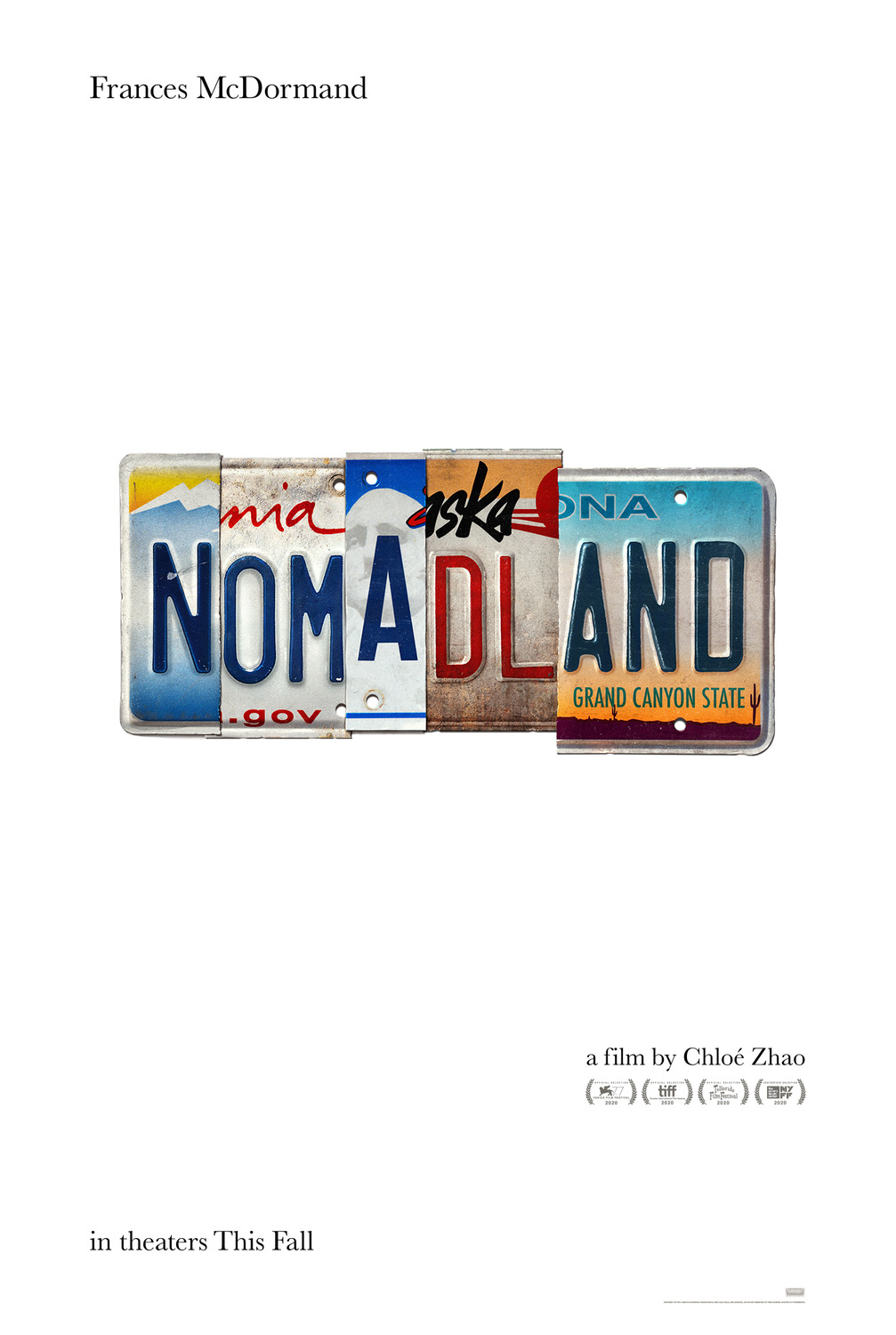Nomadland
It feels important to say from the outset that Nomadland doesn't really have a conventional plot. If you're sitting there waiting for something to happen, you'll be waiting 108 minutes and then the credits will roll. Instead, this is a movie that drops you into a woman's life, letting you follow her over the course of a life-changing year. Writer/director Chloe Zhao (The Rider) is less interested in overt plot points than in tone and atmosphere. She takes every measure to make the lead character's world come alive, to the point where the viewer feels like they're right there with her. Be aware of that going in and you'll find an exquisite, deeply poignant film.
Frances McDormand plays Fern. She spent most of her adulthood employed at a factory in Alaska that shut down during the Great Recession. As a result, she lost everything except the van she currently lives in and the few items inside it. Fern gets a gig working at an Amazon fulfillment center, where a coworker tells her about a society of people just like her, who live in vans or RVs and travel the Midwest taking seasonal jobs. Sensing few other opportunities, she runs off and joins them.
That's all there is to the movie. At the same time, that's not all there is to the movie. Zhao shot in actual locations, and aside from David Strathairn (as Dave, another nomad Fern strikes up a friendship with), most of McDormand's co-stars are non-actors living this lifestyle off-screen. Bob Wells – a YouTuber who teaches the ins and outs of RV life, from using a bucket as a toilet to finding temporary employment – plays himself as the wise leader helping Fern find her footing within the culture.
These elements combine to make Nomadland feel almost like a documentary. Everything is palpably authentic. The soft-spoken Fern listens to the hardscrabble stories of her fellow travelers, which have a ring of truth and were probably not written down in a formal screenplay. She barters for goods in the community market. She cleans bathrooms in Badlands National Park. Nothing about the picture feels staged. None of it was filmed on a set. Frances McDormand erased herself, became Fern, and was placed into this world with a small crew to find the truth of her character. Consequently, there is not a second of Nomadland that seems false or manufactured.
The movie's substance comes from noticing the little details Fern goes through. Some make you keenly aware of how difficult being “houseless” (as she calls it) can be, as when she freezes inside her van after the temperature plummets overnight. Others are happier, like the way she gradually forms personal connections, slowly letting down her guard. A subplot involving Dave's temptation to leave the road behind throws in another turning point moment for the character.
If you think the point of Nomadland is that Fern has her eyes opened by a wondrous, if occasionally hard experience...well, that isn't quite what happens. Zhao's desire is to explore what happens psychologically when people are cast away by society, when they're caught in an economic pit from which there's no easy exit, when they reject traditional society and embrace an alternative. Fern doesn't grow to love being a nomad; she learns something vital about herself from the struggles, though.
McDormand already has two Oscars, and might need to find space on her shelf for a third. This is a radically different type of performance from her. Unlike Fargo's Marge Gunderson or Three Billboards Outside Ebbing, Missouri's Mildred Hayes, Fern is a quiet, withdrawn woman. We learn the most about her simply from studying the actress's facial expressions and body language. In every shot, she makes us feel what Fern feels. McDormand is remarkable here.
Nomadland is a powerful work that achieves its impact through the subtlety of her performance, as well as through the observant tone Zhao creates. And that impact is enormous.
out of four
Nomadland is rated R for some full nudity. The running time is 1 hour and 48 minutes.
